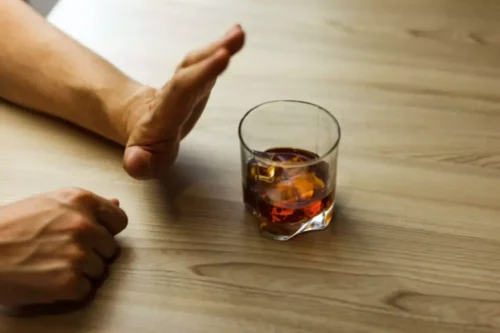
When someone drinks alcohol for a prolonged period of time and then stops, the body reacts to its absence. This is alcohol withdrawal, and it causes uncomfortable physical and emotional symptoms. Alcohol abuse and withdrawal can have a dire impact on overall health by increasing seizure risk and causing other conditions like hypertension. We offer a variety of resources to support, inform, and encourage you as you take the first step toward a more stable, healthier lifestyle.

What Happens When You Stop Drinking Cold Turkey?
We included interventional and observational studies that reported outcomes of clinical interventions aimed at treating alcohol withdrawal syndrome in adults in the ED. In several studies, possible predictors for the development of a severe AWS have been investigated. Medical history and laboratory biomarkers are the two most important methods for the identification alcohol withdrawal seizure of patients at high risk. Patients presenting with alcohol withdrawal syndrome should receive thiamine and folate supplementation as they are often nutritionally deficient. If someone has a seizure from alcohol withdrawal symptoms, you should move things out of the way that they could accidentally hurt themselves with during the seizure.
Symptom-triggered therapy

When alcohol consumption is stopped after prolonged alcohol abuse, these suppressive effects of alcohol are withdrawn. The sudden change in brain chemistry results in overactivity in the brain, which is what causes the alcohol withdrawal syndrome. Signs and symptoms of alcohol withdrawal that are a result of this brain activity include tremors, muscle rigidity, seizures, and delirium tremens. We identified 13 studies that met inclusion criteria for our review (7 randomized controlled trials and 6 observational studies). We divided studies based on intervention and summarized evidence narratively.
Long-term alcohol consumption and risk of epilepsy

Alcohol withdrawal (alcohol withdrawal syndrome) is a range of symptoms that can happen if you stop or significantly reduce alcohol intake after long-term use. A broadly used and well-validated rating scale measuring the severity of alcohol withdrawal is the Clinical Institute Withdrawal Assessment for Alcohol—Revised (CIWA-Ar) (Sullivan et al., 1989). Individuals with a CIWA score less than or equal to 8 generally do not require medications to manage alcohol withdrawal symptoms. https://ecosoberhouse.com/s can occur after someone has been drinking heavily for a few days or longer. If they suddenly stop drinking or cut back, they will typically experience withdrawal symptoms. Seek help at a professional addiction treatment facility if you have problems controlling your drinking.
- Among the seven RCTs, one was at high risk of bias, two had some concerns, and the remainder was at low risk.
- The short-term effects of alcohol result from its actions on ligand-gated and voltage-gated ion channels (2–4).
- Alcohol withdrawal seizures are common in patients with chronic alcohol use and usually occur between 6 and 48 hours after decreasing alcohol use [29–31].
- All heavy drinkers admitted to hospital should be monitored for the emergence of symptoms and signs indicating withdrawal, many hospitals using a structured withdrawal scale to monitor newly admitted patients.
Alcohol withdrawal syndrome is a clinical diagnosis that relies heavily on the history and physical, which is also used to gauge disease severity. A 2005 Cochrane review found that BZDs were significantly better for alcohol withdrawal seizures compared with placebo and had similar efficacy to other drugs, or anticonvulsants specifically. BZDs elicited similar changes in alcohol withdrawal scores compared with other drugs. The findings of the review are complicated by the heterogeneity among trials. Patients refractory to benzodiazepines may respond to addition of a different class of sedative-hypnotic (e.g., barbiturates or propofol). Neuroleptics, such as haloperidol, are reserved for severe agitation as adjunctive therapy.
Treatment / Management
- Some people describe a general “funny feeling” that happens in this phase.
- Alcohol withdrawal seizures can occur when a person has been drinking heavily for a period of time and suddenly stops or cuts back.
- It is estimated that 2 million Americans experience the symptoms of alcohol withdrawal each year (1).
- For instance, if you’ve gone through benzodiazepine withdrawal, you may experience severe withdrawal when going through alcohol withdrawal and vice versa.
Who is at risk of alcohol withdrawal delirium

